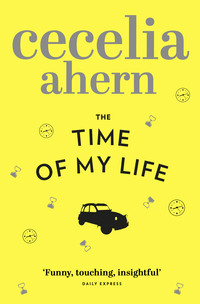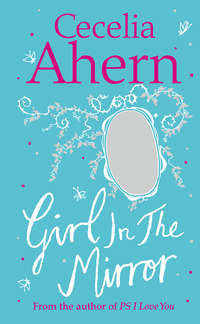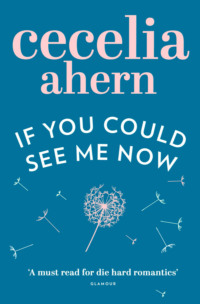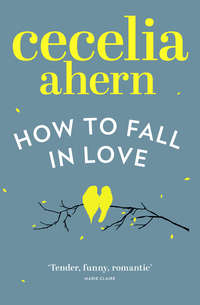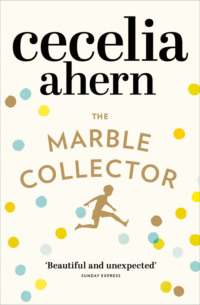
Полная версия
Roar
Her mouth falls open. She’s speechless.
He laughs. ‘Okay, nice talking,’ he says, then waddles off towards the lake.
‘Wait! Come back!’ She snaps out of her shock. ‘I’ll give you some bread!’
‘Nah, thanks,’ he says, but he waddles towards her. ‘You shouldn’t feed ducks bread, you know. Aside from the fact that uneaten bread causes changes to the chemical and bacteriological content of the water, which in turn increases the risks of avian disease, it’s bad nutrition. The recommended food for ducks is defrosted frozen peas, corn or oats. That kind of thing.’
She stares at him, completely lost for words.
‘Don’t be offended, it’s sweet of you, all right, but white bread is the worst, it has no nutritional value whatsoever. Ever heard of angel wing?’
She shakes her head.
‘Didn’t think so. It’s caused by an imbalance of nutrients in a duck’s diet. It causes a deformity in ducks’ wings, can hamper our flight or stop us altogether, which is, you know, crappy.’
‘Gosh, I’m so sorry. I had no idea.’
‘That’s okay.’ He studies her. He can’t help himself. ‘Mind if I sit with you?’
‘Sure.’
He flies up to the bench. ‘Work getting you down again?’
‘How did you know?’
‘You’re here every day. Fucking Colin. Fucking Peter. Fucking world markets. Fucking Slimming World. Bastard tomatoes.’
‘You hear all that?’
‘Hear it? We feel it. Every time we hear you coming, we armour up. You fire those pieces of bread at us like grenades.’
‘Sorry,’ she replies, biting her lip.
‘That’s okay. We figure it does you some good, even if it takes a duck eye out here and there.’
‘Thanks for understanding.’
‘We’re all human, after all,’ he says.
She looks at him, baffled.
‘That was a little bit of bird humour for you,’ he chuckles. ‘But seriously, everybody needs to have a place where they can let loose. Where they feel safe.’ He has a faraway look.
She studies him. ‘Do you?’
‘Yeah sure, there’s this great river region in Senegal where I go for the winter. There’s a sweet little pintail that I meet up with. We watch the sunrise and sunset, we hang out by the river. That’s my place.’
‘It sounds beautiful.’
‘It is.’
They sit together in silence.
‘How about we reverse it?’ he asks suddenly.
‘You want me to fly to Senegal? I’m not sure I’m your pintail’s type.’
The duck laughs. ‘Let’s reverse the feeding.’
She giggles. ‘Are you going to throw bread at me?’
‘In a way. A little food for thought.’
‘Okay.’
‘It’s not my place to say it, which is why I never said it before, but you seem more open to it today, being able to hear me speak and all. You seem angry. Very stressed, frustrated. I get the impression you don’t like your job very much.’
‘I like my job. And if there was nobody in the office, I’d love my job.’
‘Hey, look, who are you talking to? If I was the only duck in this pond, life would be much easier, let me tell you, but I pass the time watching people and I’ve noticed you. You’re not very good with people.’
‘Or ducks, by the sounds of it,’ she says, trying not to take offence. She’d always thought she was a good people person. She stayed out of everybody’s way, never asked questions, never got into conflict with anyone …
‘You’ll be better with ducks after this. As for the people: you should tell Colin he needs to trust your instincts. Tell him you were right about the Damon Holmes account. The account taking that turn for the worse had nothing to do with you and everything to do with the earthquake in Japan.’
She nods.
‘Tell Paul to stop interrupting you in meetings. Tell Jonathan you don’t enjoy the dirty emails, that donkeys don’t do it for you. Tell Christine in Slimming World that you’d appreciate it if she stopped telling people your husband was her first boyfriend. She may have taken his virginity but you took his heart. And tell your husband you don’t like tomatoes; he’s adding them to the baguette because he senses you’re stressed. It’s his way of making things more special for you. He doesn’t know that your bread is soggy by lunchtime, or how much the sogginess bothers you.’
The woman nods, taking it all in.
‘Stop hiding here and making things worse. Deal with it head-on. Calmly. Stand up for yourself. Talk to people. Be an adult. Then come here and just enjoy feeding the ducks.’
She smiles. ‘Oats, corn and peas.’
‘That’ll do just fine.’
‘Thank you, duck. Thank you for the advice.’
‘Sure,’ he says, flying down from the bench to the ground and waddling into the lake. ‘Good luck,’ he adds, swimming to the centre and narrowly avoiding the piece of bread that flies from another direction, towards his head.
The woman stands, feels dizzy, and quickly sits down again. Something the duck said hit a nerve.
Stop hiding. Talk to people.
She’s heard those words before, but not in a long time. As a child the words seemed to pass everybody’s lips; from her mother at children’s parties, from her father when he took her anywhere, from teachers, from every adult whose path she crossed until she made it her intention at a very young age not to cross people’s paths. After that, the only time she’d heard the words as an adult was from her then-boyfriend, soon to be her ex-boyfriend, though his exact words had been, Stop hiding. Talk to me.
She had always been a hider and she never wanted to talk. As a child she was afraid to speak up because she knew she wasn’t allowed to tell them the things that she wanted to say. They wanted her to be normal and act normal, but nothing really was normal, and she couldn’t tell them that. If she couldn’t say what was real then there was nothing else to say, and avoidance became the name of the game. There was only one person who had ever truly understood her, never uttering those words, even in her childhood. Her eyes filled up at the thought of him: Granddad.
Her parents’ marriage had been a volatile one. She was an only child and whenever things fired up at home, her granddad would come to collect her and they’d go for a drive. They’d have chats, little ones, innocent ones. She felt safe in his company because she was safe in his company. She loved the smell of his woollen cardigans, and the way he removed his full set of teeth and chattered them in her face to make her laugh. She loved the feel of his fat wrinkled hands when her small hand got lost in his grip, and the smell of pipe smoke from his wax jacket. She loved being away from her house, even more being taken away. She always felt that he was rescuing her, showing up at the right time as if by magic. Only now did it occur to her that most likely he came because her mother had summoned him; a surprising revelation to have after so many years of viewing the same events with the same pair of eyes.
When she was with Granddad, he’d helped her to forget the things she was afraid of. It wasn’t so much that he didn’t shine a light on the darkened corners of her mind, more a case of making her forget such a thing as darkness existed.
He didn’t push her to explain anything. He already knew. He didn’t tell her to stop hiding because he helped her escape, and that escape in childhood had become her hiding place as an adult.
He used to take her to feed the ducks.
When the yelling started, and the banging, the insults and the tears, he would arrive, she’d hear the honk of his car horn, and she would run down the stairs and out the door, holding her breath like a soldier racing from a battlefield, ducking grenades, never looking back. She would hop into the car and there would be peace. Silence in her surroundings and in her mind.
They’d feed the ducks together and he’d make her feel safe.
He sounded very much like the duck she’d spoken with.
So now she sits on the bench in the park by the lake, stunned, remembering him, smelling him, hearing him, feeling him all over again. She cries through her smile, and smiles through her tears, and then, feeling lighter, she stands and walks back to her office.

She noticed the mark on her skin on her first day back at work after nine months’ maternity leave. It had been a stressful morning. She had packed and repacked her work tote the previous night like an anxious child before her first day of school, and still, despite the endless planning, the thinking and rethinking, the freshly puréed food in pots packed away in the freezer and one in the fridge for the next day, the lunches prepared, schoolbags ready, diaper bag packed, changes of clothes in case of after-school sports grass stains, potty-training failures and explosive diarrhoea due to new formula, the school uniform washed and ironed, afterschool tracksuit ready for activities – still, after all that organization, the constant run-throughs of what-if scenarios, they ended up late.
She couldn’t sleep with all the thinking, planning, organizing, preparing, fallback-plan-making; everything was going through her mind and on top of that she had to cope with anxiety about her first day back at work. Would she be able to pick up where she’d left off? Would she muddle things up as she had been doing at home – adding bubble solution to the chicken dinner and only realizing when she went outside to blow a tin of chopped tomatoes into the air for her confused children? Would she be able to function? Was she still relevant? Had her portfolios been given away? Would her clients be happy to see her return? What if her replacement had been more efficient, quicker, faster, better? What if they were looking for flaws, examining her under the microscope, looking for a reason to get rid of the woman with three kids? There were people who wanted her job, people who could stay longer in the evening, arrive earlier in the morning, change their schedule at a moment’s notice. Young men, older men with children, young women, women with no children because they didn’t want them, couldn’t have them, or who were afraid to risk it all.
She had dropped the six-year-old at school, then the three-year-old at Montessori, then the nine-month-old at daycare. Every single drop-off had broken her heart, each one more than the last. Each child howled as she left him, looked at her with sad searching eyes as if to say, ‘Why are you leaving me like this?’ Stamping images in her mind of their crumpled-up faces, tormented and accusing. Why was she doing this to them? Nine months at home had been lovely – stressful at times but lovely, with at least one daily psychotic screaming episode that scared her more than the kids, but still, they’d been together and she’d loved them and they had felt loved. So why was she putting them through this? Most of her salary went on childcare. She could get by without working if she really had to, if they economized even further. It wasn’t about the money. Well, it was a little, but not completely. She was going back to work because she needed to. She loved her job. She wanted her job. Her husband wanted her to have this job, not just so she could help pay the mortgage but because he loved that other woman that she became when she worked, the one that felt a little more contented, a little more useful, satisfied, relevant, a little less cranky. Though she certainly wasn’t feeling that way on her first day back.
She watched her baby in the arms of the stranger whose nametag said ‘Emma’ and her heart twisted. She hated Emma. She loved Emma. She needed Emma. The baby screamed and she felt her nipples twist and leak. Her silk shirt was already soiled, not by the kids for once but by her own body. She blasted the heating, directed the fan towards her wet boobs, placed a cabbage leaf in each bra cup against her breasts, and searched the radio for anything to take her mind off abandoning her children.
That night as she was inspecting her body after the shower, she noticed the red mark. It was on her right breast, the fleshiest part of her body.
‘It’s a heat rash,’ her husband said.
‘It’s not.’
‘You always get these spots when you take a hot shower.’
‘The shower wasn’t very hot. I’ve been out for twenty minutes.’
‘It’s dry skin, then.’
‘It’s not. I’ve just moisturized.’
‘Well then, what is it?’
‘That’s what I’m asking you.’
He pushed his head closer to her breast and squinted.
‘Did Dougie bite you? It looks like a bite mark.’
She shook her head. Not that she remembered. But maybe he had. Though he’d barely looked at her when she’d collected him from daycare that evening and had fallen asleep in the car on the way home so she’d had to put him straight to bed. She recalled the struggle while handing him over to Emma at daycare. She didn’t remember him biting her, but maybe.
She’d slept well that night after the emotional day, despite a bed-wetting incident, an unscheduled night bottle and a sleepwalker. The two eldest ended up in bed with her husband while she ended up in the spare bedroom with the baby. Still, the best night’s sleep one could ask for under the circumstances.
The following day the mark on her chest had turned a purple colour and she found another. She’d noticed it after lunch, when she managed to sit alone in the local restaurant and order food for herself, by herself, actually finishing her cup of tea while it was still hot, then went to the toilet alone for the first time in a very long time. She thought she’d sat down on a pin or a thumbtack but found nothing on her desk chair. In the toilet cubicle, she pulled out her compact mirror and found an even larger red oval-shaped mark on the white flesh of her buttock. She didn’t show her husband that one but she was careful with the children, making sure none of them were nipping at her when she wasn’t looking.
It was during an overnight business trip to London that she began to grow really concerned. One too many stares at her on the plane – on which she had been able to sit alone, without having to share a seat belt or a seat, or distract her children from kicking the seat in front of them or running up and down the aisles, or screaming at the top of their lungs – caused her to rush to the bathroom as soon as they landed. She discovered that her neck was covered in red marks, which were much larger than the previous ones and definitely bite marks, with tiny tooth incisions clearly visible. She hid her neck beneath her scarf, despite the stifling heat in the car she shared with her male colleagues, and later in the hotel realized the marks had spread all the way down her left arm. While on Skype, talking to the kids, who were too hyper to pay her any attention, she showed her husband the bite marks.
His annoyance and distrust were evident. ‘Who is away with you?’
They argued and she couldn’t sleep, feeling rage and hurt, on the one night she had a bed to herself. To top it all off, at 1 a.m. the hotel fire alarm went off and she found herself outside on the street in her gown, in the cold, for thirty minutes until she could return to her room.
When she got home, her baby wouldn’t come to her, would only stay in his father’s arms and anytime she neared him he screamed as though his legs were being sawed off. Which was what hers felt like. Her husband found her sobbing in the bathroom; when he saw her body, covered in marks in various shades of bruising and swelling, he knew something was seriously wrong. The pain was agonizing.
She went to the doctor the following day. It was a Saturday and she didn’t want to – all she wanted was to be with the kids – but gave in when her husband insisted and his mother offered to have the kids for the afternoon. The pain was getting worse by the hour.
The doctor was equally confused but more suspicious. She confirmed that these were bite marks, prescribed painkillers and a lotion, then pushed some pamphlets about domestic abuse into her handbag as she left the surgery, telling her to be in touch if it continued.
Three weeks later, she was unrecognizable. The marks had spread to her face; there was bruising on her cheeks and chin, and the tips of her ears looked as though they’d been nibbled. She hadn’t missed any work – she couldn’t, not after nine months’ maternity leave; she had too much to prove, too much to catch up on. But she was exhausted. She looked ravaged and drained of all colour. The doctor arranged for blood tests. All appeared normal, nothing that could cause or be related to the marks on her skin. She and her husband fumigated the house, they got rid of the carpets and laid timber flooring in case dust mites were the cause of her agitated skin. And every weekday morning she’d say goodbye to her babies, who no longer cried when she left them, which made her feel even worse and caused her to cry all the way into the city, where she’d apply a layer of extra-thick foundation so she could pass for a competent professional in the office. When socializing at the weekend, she would lather on body make-up to cover her bitten legs, and play the super-attentive wife and friend.
Of an evening she would try to keep the baby awake in the car on the way home, sometimes lowering the windows to let the fresh air in, singing loudly, blaring the radio, anything so she could have time with him awake. But no matter what she did his eyelids would flutter, unable to stay open beyond 6:30 p.m. She drove home faster, avoided conversations or phone calls leading up to 5 p.m. She charged from the building to get to her baby as fast as she could, but each time the motion of the car would cause his long lashes to flutter closed.
It wasn’t long before she found herself in the hospital, rigged up to wires and machines. Not able to be at home with the kids, or at work, the guilt was overwhelming. They would visit her but it was heartbreaking. Not being able to play with them and hold them as she wanted to hurt her soul. Work tried to accommodate her new ‘out of office’ temporary arrangement, but she couldn’t give herself to them completely. She felt like she was letting everybody down.
Her flesh had been devoured by hundreds of angry bite marks that began as nips but ended in blood-inducing tears of flesh. The physical pain was crippling, but the inability to be everything to everyone at all times was even worse. Since entering hospital her condition had deteriorated; the number of marks on her skin had been growing by the day, and that evening an angry sore had developed on her wrist, right over her pulse, as she looked on in horror.
Blood tests and scans might not have yielded any results thus far, but being alone in the hospital had given her time to think, precious hours alone that she hadn’t had time for since becoming a mother. Tied to her bed with wires and tubes, she couldn’t move, she couldn’t get out without alerting the nurses and making an event of it. She wasn’t working and as she had no other human beings to aid and comfort, it was just her, alone in a room, with her thoughts. All the pacing was done in her head and after a time even her mind got tired, stopped, sat down. Drummed its fingers. Waited.
The suffocation passed and her breathing began. With the in-out flow of her breaths, thoughts began to shift. Everything was separated, organized, put into the relevant boxes: the time this happened, the time that happened, the things she said and should have said, and experiences she’d resolved to put behind her or relive in another way. A spring cleaning of her mind, until everything was filed away neatly in her mind and the surface was clear. A clear mind in a clear room.
She looked around. What had put her here?
She felt her wrist to check her pulse and discovered it had calmed. The machine beside her, attached by wire to her forefinger, confirmed this. The caged tiger in her had stopped pacing. As she felt her pulse, with the finger that wasn’t hooked up to the pulse oximeter, her fingers brushed her most recent bite mark. She ran the tip of her finger along the jagged teeth marks on her skin, back and forth, gently, slowly, methodically, and she recalled the moment it had appeared.
She’d received a visit that afternoon from her husband and children. They had been excited to visit her, were hyper, jumping around the room, sending toy characters on adventures in, on, around the hospital equipment; Barbie wrapped in her new IV wire dress, Lego Batman in deep distress under a wheel of the bed, a teddy bear leaping on the remote control, trying to come up with a new algorithm for poo land. Her children had snuggled up beside her on the bed, stolen the jelly and custard from the tray, talked and babbled a mile a minute about their exciting and busy lives. She had listened, her heart full, loving the sound of their little voices, their developing words, their confused but practical grammar that she never wanted to fix. Her husband sat in the armchair by her bed, leaving the spotlight on her, her moment with her babies, watching her, trying to hide his concern.
And then their time was up, visiting hour had come to an end and the nurses, who had kindly turned a blind eye to the number of visitors in her room, gave a light knock on the door to warn them. She watched as they bundled up in their coats, woollen hats that squeezed their soft cheeks together, and chubby hands disappeared into mitts. Wet kisses on her cheeks and lips, little arms barely able to wrap around her body; she breathed them in and never wanted them to let go. But she had to.
She ran her fingers over her bite mark.
The familiar feeling had been building up, the feeling that let her know when a new mysterious mark had arrived on her skin. This was the first time she’d identified it, she’d thought before that it was spontaneous, sporadic, without any pattern at all, but now she realized there was a pattern.
She had kissed her husband, his turn to have her attention, and apologized again.
‘Stop apologizing,’ he’d said gently. ‘Just get better.’
She’d apologized to the children too.
‘It’s not your fault you’re sick, Mummy,’ a little voice said.
She’d watched them leave, heard their noisy chatter and the beginnings of bickering down the hall and she felt so sorry. Sorry because she was sorry. Sorry because she felt guilty.
Her fingers stopped moving over her wrist. Guilt. When she dropped her baby off at crèche, she felt guilty. When she couldn’t collect them from school, she felt guilty. When she couldn’t take a day off when they were ill, she felt guilty. She felt guilty about her cluttered house. She felt guilty when she discovered a friend had gone through the most traumatic moment of their lives without telling her and she’d been oblivious to it, she’d missed the tired eyes, the revealing lack of sparkle or words that held back the truth. She felt guilty for forgetting to call her parents, for making a mental note to do it and then allowing herself to be distracted. She felt guilty at work for not being at home, she felt guilty at home for not being at work. She felt guilty for spending too much money on a pair of shoes. She felt guilty for stealing the children’s pizza. She felt guilty for falling back on her workouts.
She had stored up so much guilt she felt as though she was guilt incarnate.
She hated that every time she was somewhere she was thinking of where she should be. She hated that she felt she had to explain herself, justify everything, she hated being judged, she hated feeling judged when she knew she wasn’t being judged. She hated living in her head.
It was wrong. It was all wrong. She knew these thoughts were irrational, because she liked her career and she was a competent mother with so much love in her heart.
Her fingertips brushed her wrist again. She turned her wrist over and examined her skin. The most recent bite seemed paler. It wasn’t gone but it wasn’t as angry, as raw and red as it had been. She sat up in the bed, her heart pounding, trying to slow her breathing and her mind again. The numbers on the machine warned her about her heart rate. Nothing good came from her busy mind.


